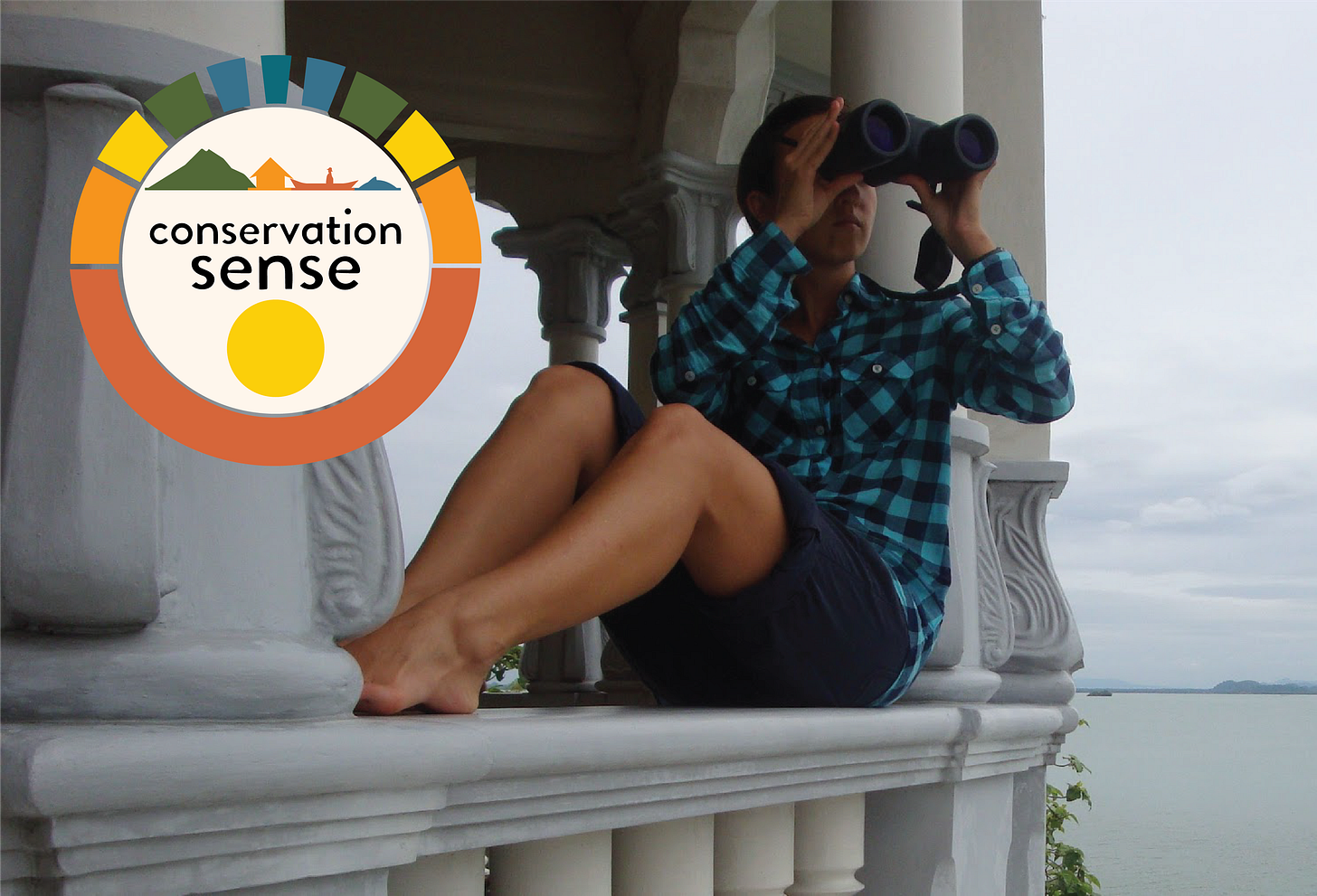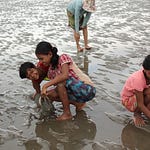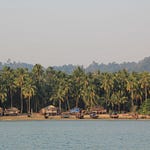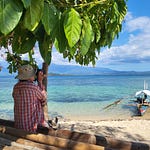Note: This is the part of my "Conservation Sense" series, a feature of my Conservation Realist newsletter. This series is more focused on building awareness and skills for better conservation, and serves as a preview of my more in-depth Conservation Sense trainings that will be offered later in 2025.
INTRO
Having established - resoundingly, effectively, eloquently (right?) - that conservation is a human process, I'd now like us to consider: why, then, is it a sector that is so dominated by the natural sciences?
I call this "natural science privilege" or "privileging natural science." Someone out there has probably come up with a better term for this. But let's continue: what it means is that natural science, and natural scientists, have a disproportionate influence in the field of conservation.

This is NOT to say that they are not important. Of course they are. We absolutely need good data on population abundance and dynamics, habitat use, impacts of threats, etc. The problem is that natural science and natural scientists dominate the overarching narratives and processes of conservation, even though natural scientists are not inherently qualified to lead activities related to... humans.
This goes beyond the simple "natural scientists don't know how to do interviews!" conversation that, while valid, only deals with a sliver of the issue here.
See, conservation is about human rights. It's about power. Who has access to resources - essentially, whose rights to resources are recognized and upheld? Who decides who has access, and why do they have that power? Who has the power to monitor and enforce access rules? Who has the power to change the rules? Whose rights to a certain quality of life are impacted by the decisions around access to resources?
This is so much more serious than research. This is about organizing movements, advocating and working toward social justice, and navigating the complex dynamics that generally come up when working with rights and power. And I'm not convinced that someone who's a fantastic field observer or who just loves the ocean so much that they believe our planet should be called "Mother Ocean" or who has amassed a ridiculous number of papers “with management implications” on their CV is necessarily equipped to effectively or mindfully do any of that.
That's not to say they couldn't learn to better work with human processes, but they're not automatically qualified to do so without additional training and experience. And there are many other people who are better trained to do such work, who are not adequately included in conservation work.
So. Some key points about natural science privilege discussed below:
Expertise in research isn't very useful without other forms of expertise
Natural science privilege operates in alignment with other forms of privilege
Natural science expertise is necessary, but it's not enough:
Expertise in natural sciences does NOT automatically equal expertise in working with people, running multi-stakeholder projects, organizing social movements, or effecting structural change. And yet, that's what conservation really needs to involve.
Now, there are many people with natural science backgrounds who have come to learn and grow in such areas of work, but there are also many who don't learn how to engage in these areas properly, and also many who can be quite dismissive of this work.
By centering natural science as the main engine of conservation, we ignore a vast universe of expertise from other field and ways of knowing:
Even in interdisciplinary conservation training programs, most of the "human dimensions" or "social science" focus tends to be on economics, political science, communications, marketing, and education. This is a woefully incomplete list.
What of: anthropology; sociology; geography; psychology; history; public health; community organizing; project management; facilitation; conflict resolution; organizational management; leadership development; social justice; innovation and diffusion; community development? (And yes, that is also an incomplete list, and a mishmash of academic disciplines and applied sectors, but it’s at least a better list than the one above).
Expertise in research isn't very useful without other forms of expertise:
For natural science research to actually be, you know, useful, there must be a functional, human-centered system for integrating that research into the actual practice of designing and implementing conservation as a human process. Natural science can't actually have a meaningful impact without the other forms of expertise needed to build and run effective conservation processes.
This goes beyond other fields of academic research, and includes local ecological and social knowledge, traditional ecological and cultural knowledge, community leadership and organization, inclusive community engagement, and "in the trenches" skills and experience.
The (odd) focus on peer-reviewed papers reinforces the disproportionate influence of natural scientists, especially from the Global North:
Many conservation-related papers will heavily feature a justification for why they contain important "implications for management." When I worked as a conservation practitioner, I can tell you: I certainly was not breathlessly searching for the latest papers on conservation, which often shared information that I could more easily obtain from reports and conversations with other practitioners. Many practitioners don't even have access to big-name journal articles.
Yes, publishing can be meaningful - it can have a role in conservation. But the culture around scrambling to publish papers and own ideas does not encourage ways of thinking or working that are optimally beneficial to conservation. I'll have more to say about this and "greatness culture" in a future lesson.
And there is a clear disadvantage for scientists not from the Global North when it comes to publishing peer-reviewed articles. Language barriers. Exorbitant publishing fees. Scarcity of salary-based conservation jobs, which means people need to decide between doing the conservation work that their grants cover or taking time from that work to toil away at a paper. Of interest: this and this.
As long as peer-reviewed papers are the basis for the "big names" in conservation, natural science privilege and Global North privilege will continue to be reinforced (of course, Global North privilege is upheld in many more substantial ways).
Natural science privilege operates in alignment with other forms of privilege:
Similarly, even within the Global South, who are the people who can afford to go to school to become natural scientists? Generally, it's people who have relative privilege compared to those who do not have the resources or financial safety net to go to university and graduate school and pursue an often financially precarious line of work.
Now, you know I have no issue scolding my fellow Global Northers; I've heard appalling things come out of the mouths of respected natural scientists who are fairly big names in the conservation realm. But I have also seen shocking examples of elitism and prejudice among Global South scientists and government officials in conservation-related departments against villagers in their own countries (please note: by and large, my Global South colleagues are mindful of respecting community members).
Natural science dominance results in a disproportionate focus on saving nature at the expense of human rights:
Natural scientists prioritize their study species and ecosystems. Often, they feel a passionate drive to save those species and ecosystems. Nothing wrong with that. It's inspiring.
However, the way natural scientists have traditionally been trained is in a science-focused vacuum that does not introduce notions of social justice or human rights, or the moral implications of conducting work that might influence how resource access and rights are allocated to humans. Many (sadly, not all) natural scientists do indeed care about human rights and social justice. But caring about these ideas in an abstract sense and knowing how to work with these issues in the real world are two very different things.
When natural scientists, with their very strong feelings about the importance of protecting nature in a way that makes sense to them, dominate the conversation, human rights can end up being viewed as an impediment or a disposable aside. It's interesting that the conservation sector so often promotes the importance of diversity when talking about biology, yet hasn't seemed to realize that such strengths of diversity - of values, perspectives, knowledge, and experiences - also apply to the process of conservation.
SO WHAT TO DO WITH THIS?
Have I come off as a bit harsh? Ah well. My aim is not to make people feel bad about being natural scientists. I’ve been known to enjoy a dolphin survey or two in my time. Such work is important and worthy.
Rather, I’m hoping to inspire more mindfulness and, yes, humility around the role that natural science should play in conservation. I don’t want you to feel ashamed if you hadn’t been aware of the points above, because (a) that’s not nice, and (b) that’s also not very useful. Let’s work toward acknowledgement and doing better.
I'd love for you to absorb these ideas and think critically about how they might reflect or resonate with your own ways of thinking or working, or how your organization thinks and works. Observe how this pervasive natural science privilege pops up - conferences, congresses, publications, documentaries, curricula about conservation - and also observe how little attention is paid to the other areas of work that are absolutely vital to effective and ethical conservation. And from these observations, see if you can influence some change, even if small. How can you speak up to better balance the conservation dialogue?
Also observe, even just in your daily life, examples of human-centered processes and areas of work. Chances are, there are organizations in your area that work on community organizing, public health, leadership development, social justice advocacy, and education. Look for parallels to conservation processes. How do these organizations handle conflict, community engagement, and building local action in the face of systemic issues? That's not to say they'll all be doing the work well, but you can even learn from the bad examples, too.
Consider restructuring your concept of the relative importance and rightful role of natural science in conservation, if any of the ideas above seemed new to you. And if those ideas weren't new to you, you can still respond with an enthusiastic "100%!" in the comments and with a like and a share.
IN CLOSING, TO MY FELLOW NATURAL SCIENCE FOLKS:
Remember: while we were in school for an inordinate number of years specializing in our area of study, the rest of humanity wasn't just twiddling their thumbs! They were building their own base of knowledge, skills, and experience. Conservation is an immensely complex and challenging endeavor, and natural scientists are not qualified to play such a dominant role. No one sector would be qualified or capable of doing so.
We need to learn to play with others, and to know where our expertise has its place, and where it doesn't. More on this as I dive into key mindsets (for better and for worse) that pop up in conservation!












Share this post